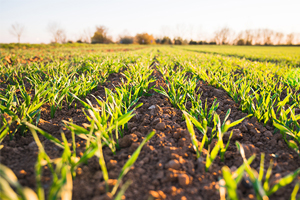Tāmaki Makaurau – Technology is shaping the future of agriculture which will help inject a massive impetus into the New Zealand economy, AgriTechNZ chief executive Brendan O’Connell says.
It’s a double impact, with exports of agricultural technologies growing and many of those same technologies transforming what agriculture and horticulture looks like in Aotearoa, he says.
Agritech underpins current levels of primary industry productivity and is leading new levels of performance and sustainability. Much of what is happening now is building on the digital foundations for agriculture in and from New Zealand.
“The technologies behind our genetic gains, farm modelling and management systems have enabled the growth of our primary industries. Now new tools are building on these digital foundations to drive the next levels of productivity and sustainability on farm.
“We are seeing the use of environmental sensors to quickly identify and manage a range of farm issues. That includes automating the right time, rate and place to irrigate on a pastoral farm as well as addressing problematic microclimates in controlled environment systems such as indoor and vertical farms, which are extensive around the world.
“Image sensors are used in the development of facial recognition for animal identification and fruit counting and sizing applications. These are all tasks that, when automated, significantly improve the productive output of our farms whilst mitigating environmental impacts.
“This ability to match farming knowledge with technology development is a New Zealand strength and links well to findings in the recent Productivity Commission report.”
The report encourages government investment on areas of existing or emerging economic strength and competitive advantage. A small country can excel in only a limited number of areas that can get to critical mass and support sustained world-class competitive performance.
Exporting distinctive products at scale is the way to reach for the global frontier, and New Zealand’s ability to innovate in food production is surely distinctive in the eyes of both global consumers and food producers.
O’Connell says these strengths are recognised in a new $40 million dollar investment fund aimed at companies capable of amplifying New Zealand’s ability to curtail environmental impacts whilst producing better foods, globally.
The fund was launched by US based Finistere Ventures in partnership with New Zealand Growth Capital Partners, and will be based in Palmerston North at The Factory, a leading R&D and company incubation cluster that has a longstanding relationship with Finistere.
The agritech industry transformation plan released last year sets out key areas for the economic development of the sector and lines up well with many of the findings of the Productivity Commission.
“In addition to addressing issues around investment, it is targeting our ability to match our research and development capabilities with international opportunities.”
O’Connell sees abundant potential in bridging current gaps in the outputs from New Zealand’s investment and resources in research, compared to similar sized countries.
He identifies with the Productivity Commission’s determination that, to make progress, the right level of sustained investment is required. The government will need to make significant investments in infrastructure, research and people to complement the efforts and investments of the business sector, he says.
For further information contact Brendan O’Connell on 021 369740 or NZTech’s media specialist, Make Lemonade editor-in-chief Kip Brook on 0275 030188






